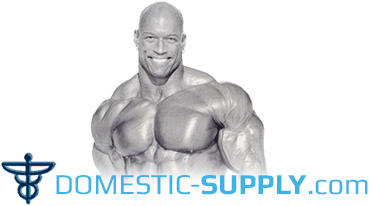Overcoming Steroid Abuse: A Journey to Healthier You

Overcoming Steroid Abuse: A Journey to Healthier You is a comprehensive guide that provides an in-depth look into the phenomenon of steroid abuse. This educational resource illuminates the risks associated with such practices, and outlines the process for recognizing signs of addiction. Our guide further delves into the steps necessary to quit steroids and emphasizes the importance of a robust support system. It also explores healthy alternatives to steroids and offers advice on how to maintain one's health post-steroids. Closing on a positive note, the guide shares inspiring stories of individuals who have successfully overcome steroid abuse. This book serves as a beacon of hope for those struggling with steroid addiction and their journey towards recovery.
Key Takeaways
- Steroid abuse is driven by societal pressure and the desire for unrealistic body standards and performance enhancement.
- Steroid abuse can lead to both psychological disorders (aggression, mood swings) and physical complications (liver damage, cardiovascular diseases).
- Recognizing signs of steroid addiction can be challenging, but approaching with empathy and evidence-based conversations can encourage seeking help.
- Recovery from steroid abuse requires a robust support system, including professional help, psychological support, and a focus on maintaining overall health.
Understanding Steroid Abuse

Why is steroid abuse, a pervasive health issue often stemming from the desire for rapid muscle gain, increasingly prevalent in today's society? The answer to this complex question lies in understanding the pressures and influences that drive individuals towards such harmful practices.
There are numerous factors that contribute to the rise in steroid abuse. One of the primary drivers is societal pressure for perfection, often fueled by media and social media platforms portraying idealized body images. The desire to achieve these unrealistic standards quickly leads many to resort to steroid use as a shortcut.
Moreover, the increasing competitiveness in sports and other physical activities further incentivizes individuals to seek rapid performance enhancement. Steroids, despite their harmful side effects, offer a seemingly quick solution to this demand.
The human cost of steroid abuse is significant, with consequences ranging from psychological disorders such as aggression and mood swings, to severe physical complications including liver damage, cardiovascular diseases, and in some cases, even death.
However, it's important to approach this issue with empathy, recognizing that those who fall into steroid abuse are often victims of societal pressures and misinformation. Awareness and education about the dangers of steroids, as well as promoting healthy and natural ways to achieve physical fitness, can play a crucial role in curbing this issue.
Risks and Consequences

Understanding the risks and consequences of steroid abuse is a critical step towards devising effective strategies for prevention and recovery. Steroids, while offering apparent benefits such as muscle growth and enhanced athletic performance, can also wreak havoc on one's health when abused. Evidence-based studies have shown that misuse of these substances can lead to both short-term and long-term health risks.
In the short term, steroid abuse may result in mood swings, impaired judgment, and increased aggression, often referred to as 'roid rage'. Users may also experience physical symptoms such as acne, fluid retention, and increased risk of injury due to the rapid increase in muscle mass.
Long-term risks include organ damage, specifically to the liver and heart. Steroid misuse can lead to liver tumors, blood clotting disorders, and high blood pressure, which in turn increases the risk of stroke and heart disease. Furthermore, prolonged use can disrupt hormonal balance, leading to reproductive health issues in both men and women.
Psychologically, dependency and addiction are significant risks. Steroid users may develop a dependency, leading to withdrawal symptoms upon cessation. This can include mood disorders, fatigue, restlessness, and craving for the drug, creating a vicious cycle that can be challenging to break.
The consequences of steroid abuse extend beyond health. It can strain relationships, impact employment, and lead to legal issues. It's essential to recognize these risks and understand that the temporary benefits of steroids are far outweighed by the potential harm. The road to recovery begins with awareness, and with the right support and resources, overcoming steroid abuse is achievable.
Recognizing Addiction Signs

To effectively combat steroid abuse, it is vital to pick up on the early signs of addiction, a task that requires attentiveness and knowledge about what to look for. Addiction to steroids isn't always apparent; it often starts subtly but can quickly escalate if not addressed promptly.
Physical signs might be the first indicators. These can include swift weight gain, development of acne especially on the back, and changes in body shape due to rapid muscle growth. Men might experience breast development, while women may notice deepening of the voice and increased body hair. These changes often happen faster than they would naturally, raising suspicion.
Behavioral changes can also signal addiction. Steroid users may become overly preoccupied with their physical appearance and gym performance. This fixation may extend to their diet and exercise regimen, leading them to neglect other aspects of life. Increased aggression, mood swings, and secretive behavior are other indicators.

Financial irregularities might also hint at a problem. Steroids are expensive, and unexplained expenses or financial stress could suggest secret purchases.
Recognizing these signs can be challenging, especially as the person struggling may go to great lengths to hide their addiction. It's important to approach the situation with empathy and understanding, as steroid addiction is a serious health issue that often stems from deeper emotional or mental health problems. Informed conversations backed by evidence can help break the barrier of denial, paving the way for professional help and a journey towards a healthier life.
Steps to Quitting Steroids

Initiating the process of quitting steroids involves a comprehensive plan, often requiring medical intervention, psychological support, and a strong commitment to change. Steroid dependency is not a simple habit to break and the withdrawal symptoms can be severe. Therefore, seeking professional help is a crucial first step. Medical professionals can provide a safe and controlled environment to manage withdrawal symptoms, reducing potential risks and discomfort.
The second step involves psychological support. Therapy is instrumental in addressing the underlying issues that led to steroid abuse. Cognitive-behavioral therapy (CBT) has been found effective in helping individuals understand their addiction, identify triggers, and develop coping strategies. Peer support groups can also be a valuable resource, offering a sense of community and shared experiences.
The third step is to cultivate a strong commitment to change. This involves setting realistic goals, maintaining a positive outlook, and practicing self-care. Regular exercise, balanced nutrition, and adequate rest can significantly aid in the recovery process. It is also important to avoid environments or social circles that encourage steroid use.
Finally, ongoing monitoring is necessary to ensure sustained recovery. Regular check-ins with healthcare providers can help detect any potential relapse and address it promptly.
Quitting steroids is a challenging journey, but with the right support and determination, it is entirely achievable. Remember, the path to a healthier you is not a sprint, but a marathon. Every small step forward is a victory in itself. Don't be discouraged by setbacks, but view them as opportunities to learn and grow stronger.
Support Systems Importance

The role of a robust support system cannot be overstated in the journey towards overcoming steroid abuse. The recovery process from any form of substance abuse, including steroids, is often arduous and fraught with challenges. It's in these moments that the presence of a strong support system becomes crucial.
Research indicates that a supportive network significantly boosts the effectiveness of treatment and reduces the likelihood of relapse. This network can include family, friends, healthcare professionals, or support groups. Each of these entities plays a unique role in the recovery process. Family and friends provide emotional support, encouragement, and grounding in reality when the temptation to relapse looms large. Healthcare professionals, on the other hand, offer medical and psychological assistance, helping the individual navigate withdrawal symptoms, and address underlying mental health issues.
Support groups are particularly essential. They offer a sense of belonging, reduce feelings of isolation, and provide practical advice from those who have been through similar experiences. The shared stories of struggle and success can be hugely motivating for someone on the path to recovery.
Having a support system is not merely about having people around. It is about having a network that understands the complexities of overcoming steroid abuse, provides non-judgmental support, and aids in building resilience. The journey to a healthier you is not one that has to be taken alone. With the right support system in place, the path can become less daunting, making recovery not only possible but also more sustainable.
Healthy Alternatives to Steroids

Often, individuals grappling with steroid abuse can benefit greatly from exploring healthy alternatives to steroids, which can provide similar benefits without the associated risks. The road to recovery is not easy, but it's possible and definitely worthwhile. Here, we outline three natural methods that can aid in regaining health and improving overall physical performance.
- Regular Exercise and Resistance Training: Engaging in regular physical activity can naturally improve muscle strength and endurance. Resistance training, in particular, can boost testosterone levels, promoting muscle growth and repair – similar to the effects of steroids, but without the harmful side effects.
- Nutrition and Protein-Rich Diet: A balanced diet rich in proteins, complex carbohydrates, and healthy fats can aid in muscle building. Consuming enough protein, particularly post-workout, can stimulate muscle protein synthesis, leading to muscle growth.
- Natural Supplements: Certain supplements like creatine, branched-chain amino acids (BCAAs), and omega-3 fatty acids can aid in muscle recovery and growth. They can provide similar benefits as steroids but in a safer way.
Maintaining Your Health Post-Steroids

Once you've begun to establish healthier alternatives to steroids, the next vital step in your journey is ensuring the maintenance of this newfound health post-steroids. It's not just about distancing oneself from the use of steroids but also about embracing a lifestyle that safeguards your well-being in the long run.
Adopting a balanced diet is paramount. Nutrient-rich foods like fruits, vegetables, lean proteins, and whole grains can replenish the body, aiding in the recovery of damaged tissues and organs. A well-balanced diet also plays a crucial role in maintaining a healthy weight, which is essential after steroid abuse, as these substances often lead to unhealthy weight fluctuations.

Regular exercise is another key factor. It increases cardiovascular fitness, strengthens the immune system, and helps manage stress and anxiety, which can often be triggers for substance abuse. Moreover, exercise can boost your self-esteem, proving that you can achieve physical fitness without harmful substances.
Follow-up with your healthcare provider regularly. They can monitor your physical health and provide ongoing support as you navigate your recovery. Remember, it's okay to seek help and ask questions.
Lastly, mental health should not be overlooked. Therapy and support groups can help process the emotional toll that steroid abuse may have taken and develop coping mechanisms for potential triggers.
Maintaining your health post-steroids is a continuous process that requires commitment and patience. It's about nurturing your body and mind, making conscious choices that promote wellness, and celebrating every small victory on your journey to a healthier you. Remember, your health is worth every effort. Stay strong and keep moving forward.
Inspiring Stories of Recovery

In this journey to a healthier you, hearing about individuals who have successfully navigated the path of recovery from steroid abuse can be truly inspiring and motivating. Each story is unique, yet they carry common threads of courage, perseverance and resilience.
- Jason's Story: Jason was a high school athlete with dreams of making it big in professional sports. Lured by the promise of enhanced performance, he fell victim to steroid abuse. However, Jason recognized his addiction when he started experiencing severe health complications. He sought help, underwent a thorough detoxification process, and committed to a clean lifestyle. Today, Jason visits schools to educate students about the dangers of steroid abuse.
- Sarah's Story: Sarah, a bodybuilder, started taking steroids to keep up with her male counterparts. Over time, she became dependent on these substances, leading to a myriad of health issues. Sarah's turning point came when she collapsed during a competition. She went through intensive therapy and now advocates for natural bodybuilding.
- Daniel's Story: Daniel was an ordinary man who used steroids to boost his self-esteem. The cost was high: he lost his job and his family. Hitting rock bottom, Daniel decided to reclaim his life. He sought professional help and embraced a healthier lifestyle. Today, Daniel is a testament to the power of recovery and redemption.
These stories of recovery should serve as a beacon of hope. Overcoming steroid abuse is challenging, but possible. With professional help, a strong will, and a supportive community, you too can turn your life around. Remember, it's never too late to choose health over harm.
Frequently Asked Questions
What Are Some Common Myths and Misconceptions About Steroid Abuse?
Common myths about steroid abuse include the belief that it is harmless, only problematic for professional athletes, or that it only affects physical health. However, evidence reveals that steroid abuse can lead to serious physical and mental health issues for anyone, regardless of athletic status. Furthermore, the misuse of steroids can have deleterious long-term effects such as cardiovascular disease, liver damage, reproductive disorders, and severe psychological disorders.
Can a Person Abuse Steroids Without Realizing It Due to Misinformation or Lack of Knowledge About the Substance?
Yes, a person can unintentionally abuse steroids due to misinformation or lack of knowledge about the substance. This often results from misconceptions regarding their effects and safety. Steroids, while beneficial for specific medical conditions, can be harmful when used improperly or without medical supervision. The abuse may result in severe health issues, emphasizing the importance of accurate information and professional guidance when using these substances.
How Does Steroid Abuse Affect Mental Health in the Long Run?
Long-term steroid abuse can significantly impact mental health, leading to a range of psychiatric disorders. These may include mood swings, anxiety, depression, and increased aggression often termed 'roid rage'. Also, cognitive deficits may occur, affecting memory and attention span. Steroid-induced psychiatric disorders can persist even after cessation of drug use, hence, early detection and intervention are crucial for preventing these detrimental effects on mental health.
Are Certain Demographics or Communities More Prone to Steroid Abuse Than Others?
Yes, certain demographics are more susceptible to steroid abuse. Research indicates that steroid use is more prevalent in male adolescents, particularly those involved in competitive sports or bodybuilding. Additionally, individuals within the LGBTQ+ community, especially those seeking body modification, may also be more prone. However, it's important to note that steroid abuse can occur in any demographic, underscoring the necessity of comprehensive education and prevention strategies.
How Does the Legal System Handle Cases of Steroid Abuse and Possession?
The legal system treats steroid abuse and possession seriously. Laws vary globally, but in many jurisdictions, possession of steroids without a valid prescription can lead to severe penalties including fines and imprisonment. Generally, legal consequences increase with the amount possessed and intent to distribute. These laws aim to deter misuse and protect public health. However, enforcement strategies must be balanced with public health initiatives to support those struggling with steroid abuse.
Conclusion
In conclusion, overcoming steroid abuse is a challenging yet achievable goal. It requires understanding the problem, identifying the signs of addiction, and taking decisive steps towards quitting. The importance of a strong support system cannot be overstated. Embracing healthier alternatives and maintaining one's health post-steroids is crucial for sustained recovery. The numerous inspiring stories of individuals who have successfully overcome steroid abuse serve as a beacon of hope for others on this journey.
